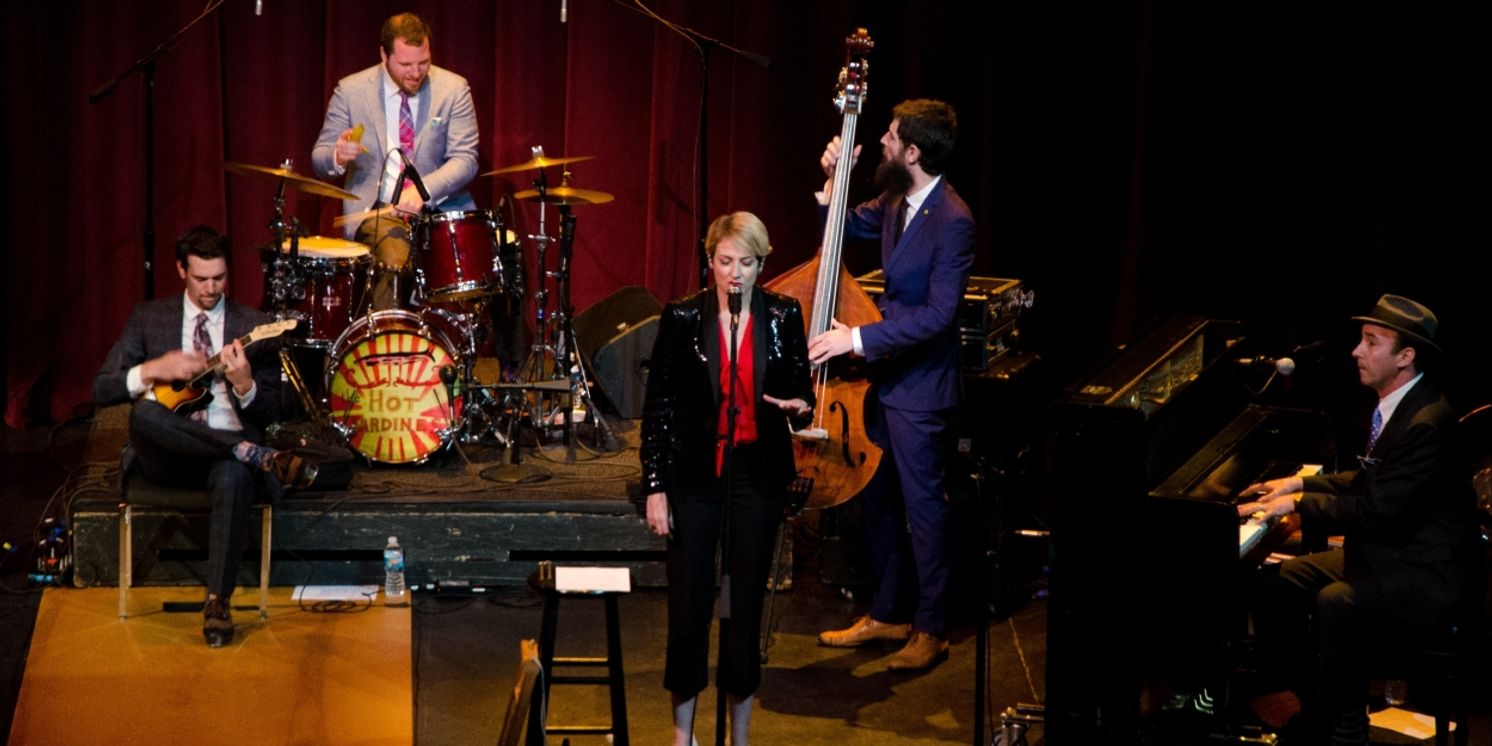Review: THE HOT SARDINES Offer Zing & Swing at Birdland
Some French, some pop, and all that jazz...through March 9 (two shows a night)

Their jazz is hot, but there’s nothing "fishy" about the authentic sound spun by the group called The Hot Sardines. Performing two sets a night at Birdland through March 9, their music is fun and accessible, sly, and frisky. Evan Palazzo, sporting a fedora and a grin, spreads joy on piano and the group’s sole female member, Elizabeth Bougerol, sings all the numbers with flair and personality, often sly and slinky. In addition to the gentlemen providing great sounds and solos on brass, reeds, bass, and percussion, DeWitt Fleming, Jr. adds the unusual entertainment factor of being featured as a nimble tap dancer.
Miss Bougerol, center stage, also handles the spoken duties, introducing songs and offering some comments and quips. She was raised in France and varies the set list’s flavor by singing a few numbers in French, including her own lyric to the old song associated with Peggy Lee, “Why Don’t You Do Right?” And she tells us that the earliest English version had a drug connection, first titled “Weed Smoker’s Dream.” And what do we think “When I Get Low, I Get High” is about?
The Hot Sardines program also featured the vintage sassy assertion “‘’T Ain’t Noboby’s Biz-ness If I Do.” The core sensibility had the spirit and lived-in love for old-timey early jazz as solid entertainment that fits right in with other Birdland acts like the band Vince Giordano & The Nighthawks and retro singer/multi-instrumentalist extraordinaire Bryce Edwards. While the Sardines clearly are clearly at home in the effervescent comfort zone of music from 100 years ago, give or take a decade, they branch out to weave in other genres and styles, too. The Tuesday set included three Cole Porter standards, a cute take on the 1959 pop hit “Love Potion No. 9” (with the audience singing the title phrase), and the cheery number from Disney’s The Jungle Book, “I Wanna Be Like You” — again featuring words sung in French.
The band distributes the musicians’ mid-song solos wisely, letting the audience truly appreciate each player and instrument. Plenty of snazzy upbeat passages soared through the air, with some mellow moments for balance. The agenda seemed to be about entertaining first and foremost, and for most of the night that seemed to be enough, thank you. Some may crave a few numbers that touch the heart more, demanding emotional involvement. And a couple of the song choices had that potential (such as “Until the Real Thing Comes Along” or, if sung with weariness in its original character context, “Love for Sale”). But these musical mirth-spreaders weren’t out to tug at our heartstrings or bring gloom to the room. They’d rather raise our spirits and Raise the Roof. And that was often diverting, delicious, or dazzling.
Reader Reviews
Videos

